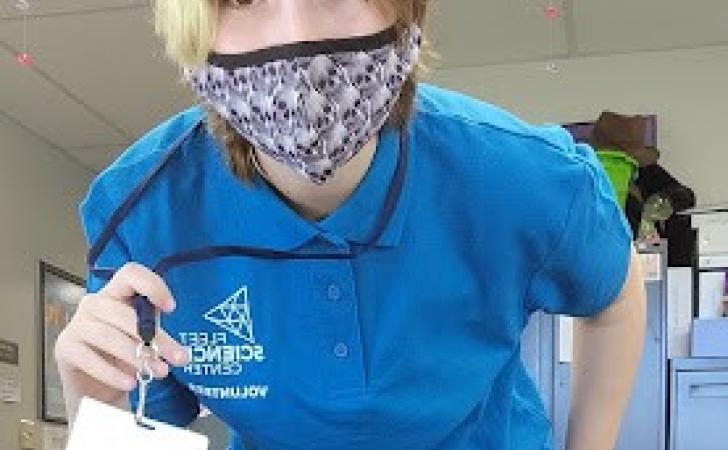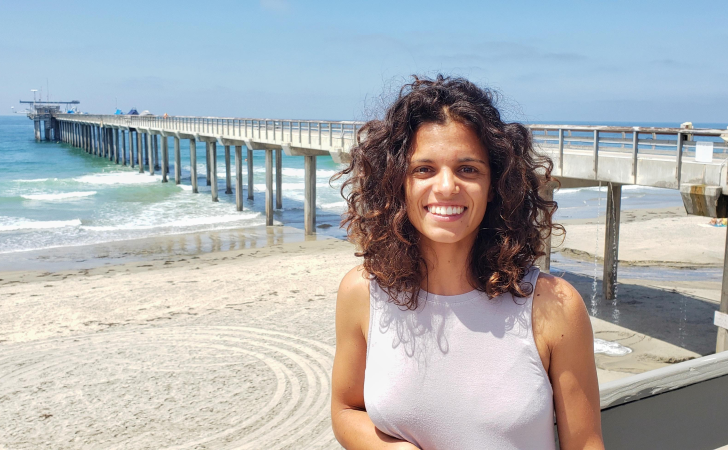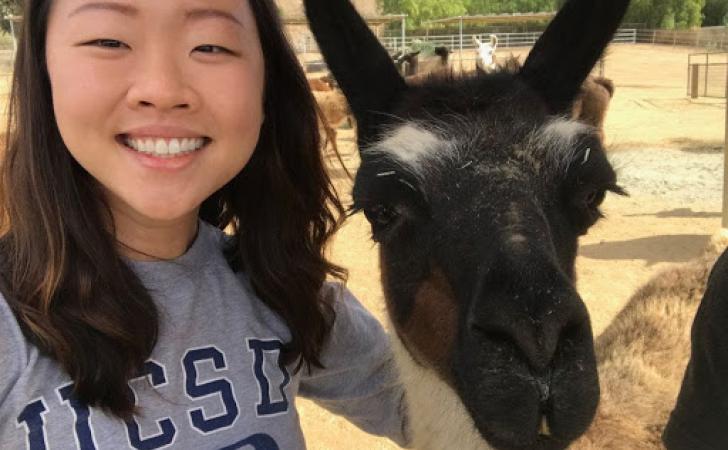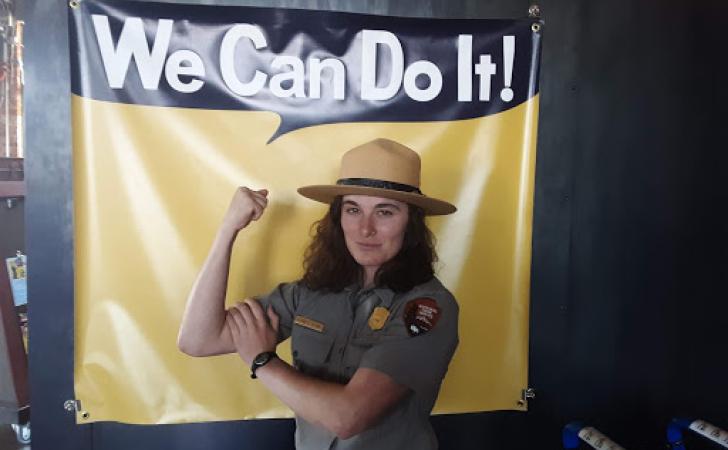Distance Learning Hubs: Science, Art, and Personal Growth
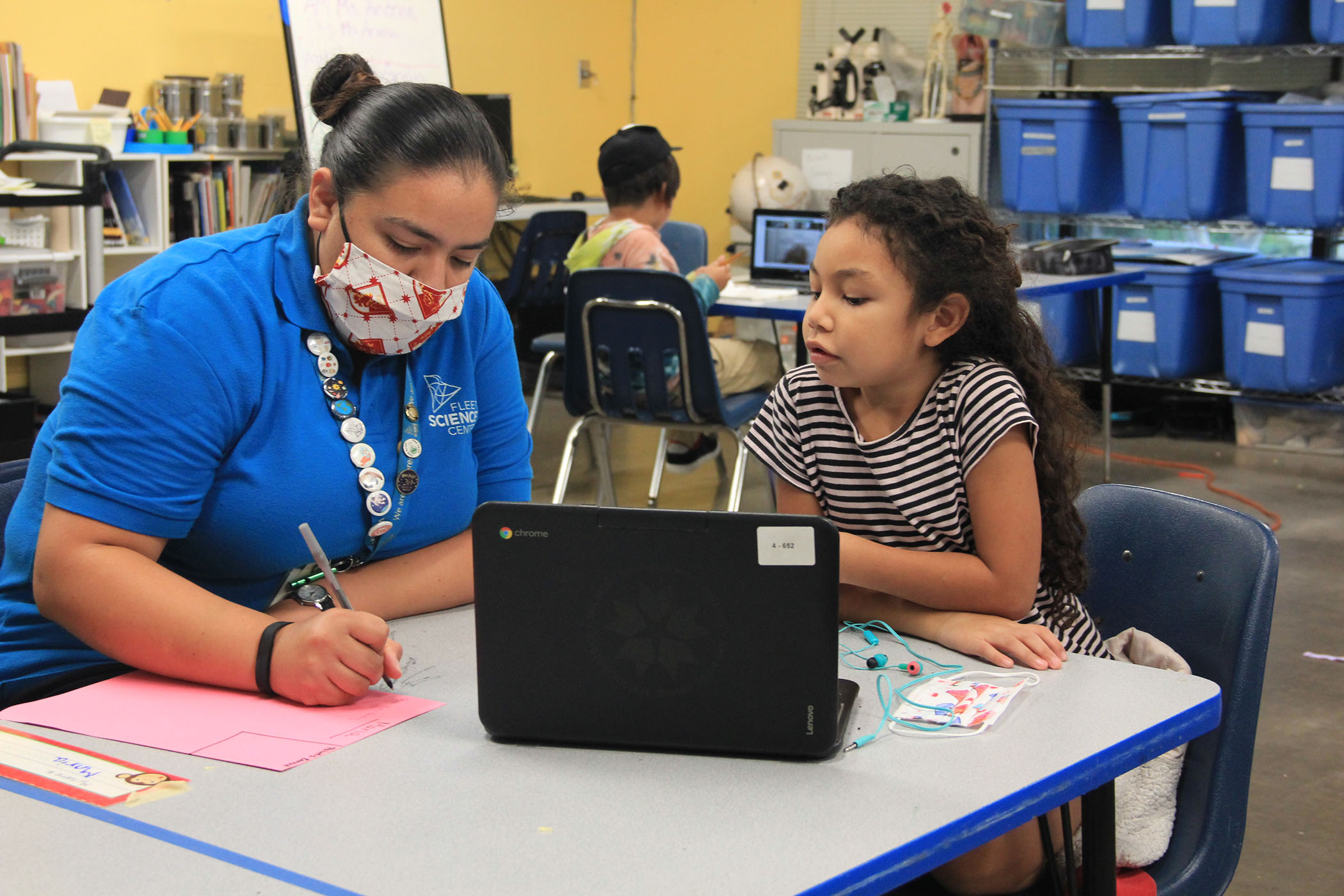
By Mr. Kit, Educator at the Fleet Science Center
I have seen a lot of students come from a variety of backgrounds in the short time that our Distance Learning Hubs have been available to the public. It’s great to see kids learning and engaging in so many different things from when I was their age. I was very impressed to see several of them learning German as a second and in some cases, a THIRD language. It just shows how far learning and technology has come in a very short time. While I have been impressed with how much kids can learn and do on their own at such a young age, I have been a bit concerned about what they are missing out on.
For starters, [with the reduced classroom time] some of these kids don’t even have a science class...let alone the arts! With the Distance Learning Hubs, I get to introduce them to BOTH! Sometimes, science is more art than science. You have to be creative with the design of a project, or getting chemicals to react a certain way or color, requiring students to take on an artistic approach to a degree. Even something as simple as discovering soundwaves with our Boomwhackers is learning science by creating art through music. The science aspect helps grow and expand the brain, while the art aspect relaxes the brain and body which allows kids to express themselves and share how they would solve a problem. Art requires you to be creative and expressive in ways that contrast with science, which can be seen by kids as “cold” or too “analytical” and “logical.” But, by connecting the two, you make science more enjoyable.
As an actor and performing arts major by trade, I get to show kids some extracurricular art projects they can do on their own. I’ve taught kids how to macrame, simple optical illusions they can create (shoutout to Kelly B on that one), and even showed them that educators and teachers can be silly too. For many of these kids, this was their first time experiencing science and challenges that taught them critical thinking, problem solving and “looking at things through the wrong end of the telescope,” as Dr. Seuss puts it. A classic example is one of my favorite experiments, the “Spaghetti Tower” or “Cargo Hold” challenge. In the tower version, they have to build a structure X inches tall with limited resources, while in the latter version, they have to fly a plane X amount of feet carrying X amount of materials. I can’t tell you how many times kids have to redesign and re-test their creations. Sometimes all they need is a helpful tip or advice to put it together on their own. What a joy it is to see them work independently and as a group to try to solve the challenges I give them. We had very fun and healthy engineering competitions which stretched the kids’ imagination and creativity in the best way possible. This was probably some of the most fun some of these kids had in awhile.
As I mentioned, many of these kids just need someone to believe in them or encourage them in what they are doing. It seems like some of them need someone to say, “Hey! I know you can do it!” Getting to know the kids and just talking to them on a personal level to understand their stories and where they are coming from makes a world of difference to their self-esteem. Some kids come in with perhaps a lackluster attitude and within a couple days they are standout, star individuals. Some kids were very shy, didn’t want to talk and had a hard time engaging in some activities at first. But, when they saw how relatable (or silly at times) I could be, they began to let their guard down and do the same. One student showed exceptional engineering skills simply because I changed one thing about his experiment. Or, I would CHALLENGE him to meet a certain goal/expectation. “Now, can you make your structure just as tall with less materials? What do you think would happen if we tried this? Have you looked at it in another way?” It’s allowing the kids a healthy amount of struggle and difficulty and knowing when the right time is to jump in and offer guidance. To help connect with someone and guide them through a problem either academic or otherwise is a very rewarding experience. It is my hope that by having worked with these kids that they continue to pursue creative solutions to the scientific community. “A good soldier never leaves a man behind.” And a good educator never gives up on a student.
Learn more about Distance Learning Hubs at the Fleet Science Center at fleetscience.org/events/distance-learning-hubs.
